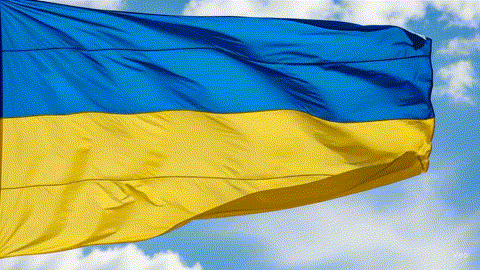A night of terror in Ukraine’s capital leaves 14 dead, including an American, as calls for international action intensify
The recent Russian drone and missile strike on Kyiv stands as one of the deadliest assaults on Ukraine’s capital since the war began, killing at least 14 people—including a 62-year-old American citizen—and injuring more than 100 others. This attack, which devastated residential neighborhoods and left families searching for loved ones amid the rubble, underscores a brutal escalation in Russia’s war campaign. With global leaders watching, Ukraine’s desperate plea for stronger sanctions, improved defense support, and unwavering international solidarity grows louder. Read on to discover the stark realities of the historic strike and its broader implications.
The Night Kyiv Will Not Forget
Relentless Barrage Over the Capital
On the night of June 16-17, 2025, Kyiv was pelted by a barrage of 440 drones and 32 missiles over nearly nine harrowing hours. The strikes hit 27 different locations across the city. In one of the worst-hit areas—the Solomianskyi district—a nine-story apartment building crumbled under the assault. Fires consumed parts of the neighborhood, and residents were forced to flee as explosions shattered the calm of the night. Ukraine’s Interior Minister Ihor Klymenko described the assault as “one of the most terrifying strikes on Kyiv,” drawing attention to the immense scale of destruction.
Human Toll: Stories from the Rubble
The human cost of the attack is heart-wrenching. Among the victims was a 62-year-old American, caught in the blast of shrapnel while seeking shelter. Over 100 others sustained injuries, many of them critically, as first responders worked tirelessly amid the chaos.
Olena Lapyshniak, a 49-year-old resident who narrowly escaped the blast, recalled the horror:
“I heard a whistling sound and then two explosions that blew out my windows and doors. It’s horrible, it’s scary. In one moment, there is no life.”
Evgeniy Povarenkov, whose apartment was obliterated, shared his anguish:
“They are killing us, killing the Ukrainian nation.”
Tetiana Pokholovich, a 63-year-old survivor, simply stated,
“We want peace,”
her voice echoing the deep exhaustion of a city living under constant threat. The psychological scars, alongside physical destruction, paint a grim picture of life in a war-torn Kyiv.
Escalation and International Response
A Pattern of Increasing Brutality
This recent attack is part of a larger trend in which Russia has escalated its assaults on Ukrainian cities. In June 2025 alone, Russia has unleashed over 400 aerial weapons in multiple waves—an unprecedented move that has led to a reported 50% increase in civilian casualties compared to the previous year. Analysts observe that the timing of these strikes, coinciding with major international events like the G7 summit in Canada, signals an intentional effort to strain Ukraine’s defenses and test global resolve.
Ukraine’s Plea: “We Need More Than Words”
Ukrainian President Volodymyr Zelenskyy sharply condemned the attack, calling it “pure terrorism” and emphasizing that such actions reveal a ruthless disregard for human life. He stated,
“Putin does this solely because he can afford to continue the war. It’s a disgrace when the powerful of this world turn a blind eye to it.”
During the G7 summit, while world leaders discussed further sanctions and military aid, Zelenskyy demanded that Western nations provide Ukraine with advanced air defense systems, long-range missiles, and fighter jets. Kyiv Mayor Vitalii Klitschko declared a day of mourning and urged,
“We need global solidarity. The world must not look away.”
Global Reaction: Condemnation Amid Uncertainty
The United Nations quickly condemned the attack and emphasized the mounting humanitarian crisis. Despite strong words from international bodies and strong sentiment at the G7 summit, critics argue that the global response has lagged behind the scale of violence. The premature departure of U.S. President Donald Trump from the summit further complicated efforts to consolidate a robust international stance. For many in Ukraine, the question persists: will international leaders take decisive action or will this tragic pattern continue?
Russia’s Justification and a Quest for Balance
Russian officials have maintained that their operations targeted military-industrial facilities in Kyiv and other regions. They argue that the strikes were designed to “demilitarize” Ukraine and protect Russian-speaking populations from what they claim is an escalating threat. However, these assertions face fierce scrutiny from human rights organizations and global observers who document clear evidence of civilian suffering and widespread devastation.
Balancing these narratives remains a challenge for international policymakers. The stark realities on the ground—in which concrete evidence overwhelmingly favors the Ukrainian accounts—add urgency to calls for reinforcing sanctions and boosting Ukraine’s defense capabilities.
The Road Ahead: What Will It Take?
The June 16-17 strike on Kyiv is a severe test of resilience and global resolve. Hundreds of families are now displaced, and countless others face an uncertain future amid the ruins of their once-secure homes. This attack has not only deepened Ukraine’s humanitarian crisis but also fueled demands for decisive international action.
As pressure mounts on global powers to address this aggression, the war-torn streets of Kyiv serve as a grim reminder of the urgent need for change. For Ukraine, every moment without stronger support from the international community translates into further loss, suffering, and the erosion of hope.

Stand With Ukraine
The devastation in Kyiv is not solely a Ukrainian tragedy—it is a reflection of the global challenge in confronting unchecked aggression. As President Zelenskyy and Mayor Klitschko have underlined, words are no substitute for action. The world must accelerate efforts to enforce stringent sanctions, bolster Ukraine’s defensive capacity, and ensure lasting international partnerships that prioritize peace and human dignity.
Now is the time to demand change. Stand with the people of Ukraine by sharing this story and contacting your local representatives. Show your support for stronger measures against aggression and let the tragic events of this night galvanize a movement for peace and justice.



